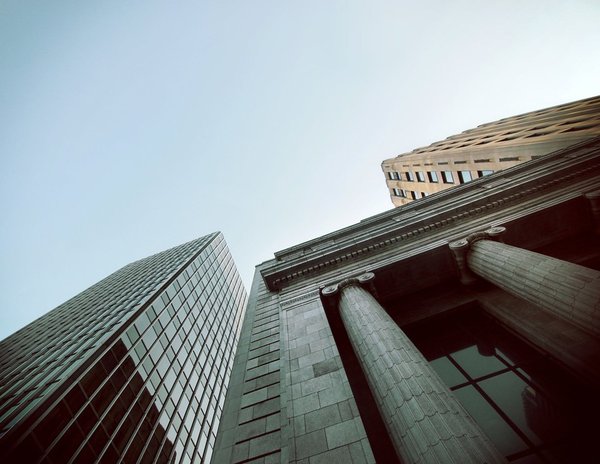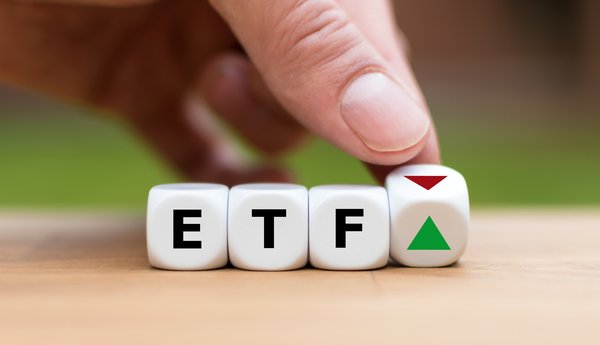Experts are calling for a recession in the near future. Whether it comes quickly or not, it’s a virtual certainty that a recession will hit the U.S. economy at some point. A recession might seem like a frightening concept, and it can certainly be a turbulent time for investors. The reality, however, is that recessions occur every so often, and investors should be prepared to deal with them from time to time.

Understanding bank stocks in recessions
Understanding bank stocks in recessions
The bad news is that recessions are generally bad news for bank stocks for a few reasons. For one thing, recessions are generally accompanied by rising unemployment, and more people out of work means more people are likely to have trouble keeping up with their bills. As a result, banks often see a significant rise in loan defaults (and, therefore, losses) during a recession.
In addition, recessions cause banks to tighten credit standards, and consumers are usually less willing to borrow money for things like a new car or home purchase during uncertain times. The combination of these factors usually means reduced demand for loans. So, not only do banks typically see a rise in loan losses in a recession, but loan portfolios that generate interest income often shrink -- or at least stop growing -- as well.
The good news is that some banks are better positioned than others to weather the effects of a recession. Some simply have excellent asset quality and track records of strong performance through a variety of economic cycles, and others have parts of their business that actually can benefit from economic uncertainty.
Three top bank stocks for a recession
Three top bank stocks for a recession
With all of that in mind, here are three bank stocks that could work well as investments, even if a recession comes. To be sure, it’s entirely possible that their stock prices will take a dive due to overall market weakness or fear, but their businesses are likely to hold up nicely.
| Bank Name (Ticker) | Market Cap | Description |
|---|---|---|
| M&T Bank (NYSE:MTB) | $19.1 billion | More than 1,000 branches in the Eastern U.S. |
| Goldman Sachs (NYSE:GS) | $107.2 billion | Leading investment bank with massive trading operations. |
| JPMorgan Chase (NYSE:JPM) | $393.2 billion | Largest U.S. bank with several desirable recession-resistant qualities. |
1. M&T Bank
M&T Bank (MTB 0.81%) is a regional bank that is concentrated in the Northeastern and Mid-Atlantic regions of the U.S. Its branches stretch from Maine to Virginia, but don't let the term "regional bank" scare you away. There are some big differences between M&T Bank and other regional banks that have seen large deposit outflows and extremely turbulent stock prices.
First and foremost, M&T has an unparalleled history of strong business performance, even in tough times, thanks to its fantastic risk management and superb asset quality. Consider the Great Recession that followed the financial crisis in 2008. Not only did M&T remain profitable in every single quarter (M&T hasn't had an unprofitable quarter since the 1970s), but it was the only bank out of the dozens in the S&P 500 index that didn't cut its dividend during that terrible recession for banks.
M&T Bank is the most consumer-focused bank out of the three discussed here, with about three-fourths of its revenue from interest income. It makes some money from mortgage origination, trust management, and other fees, but it doesn't have an investment banking side of its business like the other two.
The bank has an above-average net interest margin of more than 4%, as well as a below-average 0.22% net charge-off rate. Plus, as one of the most financially solid banks of its peer group, M&T has the flexibility to take advantage of attractive acquisitions and other opportunities as they arise.
2. Goldman Sachs
In terms of the composition of its business, Goldman Sachs (GS 1.59%) is about as far from M&T Bank as you can get. It has a relatively small consumer banking operation that consists mainly of the Marcus high-yield savings platform and its credit card business; Goldman is the bank behind Apple (AAPL 0.64%) and General Motors (GM 4.37%) credit cards.
However, Goldman Sachs' main focus is investment banking. Goldman is a leader in equity and debt underwriting, mergers and acquisitions advising, and wealth management, and it has a massive trading desk. It lends money to corporate clients, invests its own capital in equity and debt investments, and manages trillions of dollars in assets for its clients.
To be sure, a recession tends to hurt certain aspects of investment banking. Few companies decide to complete an initial public offering (IPO) during tough times, and merger and acquisition activity tends to slow to a crawl as well. But the trading desk, which is Goldman Sachs' bread and butter, can actually benefit from uncertainty in the market.
Just to show how resilient Goldman Sachs can be, the company stayed profitable during the 2008 crash, and in 2009 (when the market hit bottom during the Great Recession), Goldman Sachs had one of its best years ever. Revenue was just shy of its all-time high, and return on equity was a stellar 22.5% (more than 10% is generally considered good). Trading revenue was off the charts, with fixed-income trading revenue significantly higher than its pre-recession 2007 peak.
In a nutshell, Goldman Sachs has a great record of making money no matter what the economy or stock market is doing. It has been a leader in investment banking for many years, and we don't think its position is in any jeopardy.
3. JPMorgan Chase
JPMorgan Chase (JPM 1.44%) is the biggest bank in the U.S. by asset size and market cap, and as you might expect from such a massive institution, its business consists of a little bit of everything. Its Consumer and Community Banking segment is the consumer-facing side and includes Chase retail banking operations. The bank offers a full spectrum of loans, deposit products, and other banking services.
JPMorgan Chase also has one of the largest investment banking operations in the world, even larger than Goldman Sachs in some respects. It also has a massive wealth management business with more than $4 trillion in client assets, as well as a commercial banking division that includes its corporate banking and commercial real estate finance businesses.
So, why invest in JPMorgan Chase during a recession? For one thing, the bank's investment banking (specifically trading) operation could offset weakness in the consumer side of the business during tough times. And unlike M&T, JPMorgan Chase is considered a systemically important financial institution or "too big to fail." You may have heard about large amounts of deposits leaving regional banks during turbulent periods. JPMorgan Chase has a much lower risk of a bank run than many of its peers.
It's also worth noting that JPMorgan Chase can emerge from recessions (and has) an even stronger institution than before. In the financial crisis alone, JPMorgan Chase scooped up the Bear Stearns and Washington Mutual franchises for fire-sale valuations. More recently, it bought First Republic after it went into FDIC receivership, and it is estimated that the assets it gained are worth billions more than it paid.
Related investing topics
Buy for the long term
Buy for the long term
To be perfectly clear, all three of these banks are solid long-term investments, regardless of whether a recession comes or not. And if a recession makes their share prices decline, it could be an excellent opportunity to buy shares at a discount.
However, keep in mind that there's no way to predict what these three bank stocks will do over short periods of time. Investors should be prepared to deal with significant turbulence if a recession arrives, but it's impossible to predict when or how bad a recession might be. In short, buy for the long term, not just because you think a recession is near.















